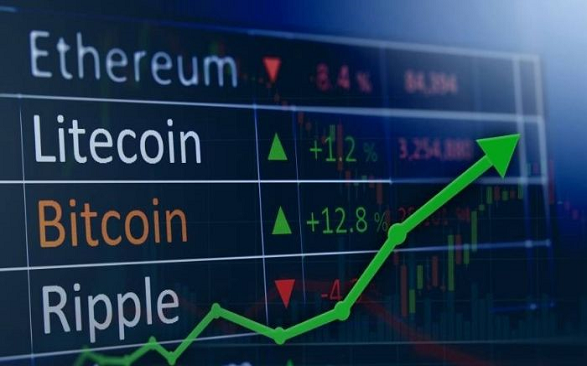Coinbase has been in a legal tussle with the U.S. Securities and Exchange Commission (U.S SEC), sparking concerns about regulatory transparency and the fate of the local cryptocurrency sector. Despite a notable decline in trading activity after the U.S SEC’s legal action Coin stock value is up by more than 70%, at the time of writing.
Regulatory Uncertainty and Its Impact on Coinbase
The regulatory landscape for cryptocurrencies in the U.S has long been unclear for market participants, with questions surrounding whether certain crypto assets qualify as securities or not. The U.S SEC alleges that Coinbase breached the law by failing to register its business. However, Coinbase argues that the assets traded on its exchange are not securities.
The U.S SEC’s lawsuit, filed two months ago claims that Coinbase engaged in unregistered trading of several crypto assets which the U.S SEC classifies as securities. Coinbase is also facing scrutiny over its “staking” program, where it pools crypto assets and offers rewards to customers. The legal confrontation has taken its toll on Coinbase’s stock price. After the U.S SEC’s lawsuit, Coinbase’s stock witnessed a sharp decline. This drop marked the exchange’s largest percentage decline in one day since late March.
At the time of writing, Coinbase’s stock demonstrated resilience in the face of adversity. The stock rebounded impressively, surging over 70% from its lowest point. As of the latest data, COIN shares were trading at $85.96, reflecting a remarkable recovery from its low of $50 on the day of the lawsuit. Coinbase’s market capitalization has risen to over $20 billion.
The aftermath of the U.S SEC lawsuit and the prevailing crypto winter has cast a shadow over Coinbase’s once prominent position in the centralized exchange arena. Once occupying a coveted spot among the top cryptocurrency exchanges, Coinbase has seen a notable decline in its trading volume ranking. According to data compiled by Mizuho Securities USA, an American subsidiary of the Japanese investment firm Mizuho Securities, Coinbase slipped from its previous high-ranking position to the 14th spot on the list of top crypto exchanges by trade volume. This significant drop is noteworthy, considering Coinbase held the 4th position just the previous year.
You might also like: U.S SEC vs Binance: Impact on BNB price and what to expect from here
A Quest for Jurisdiction and the Regulatory Gap
U.S SEC’s pursuit of jurisdiction over the crypto sector under Gary Gensler aims to ensure consumer protection and investor safety in the U.S. cryptocurrency market. But Coinbase questions the regulator’s attempt to fill what it consuders to be a regulatory gap in the U.S without proper congressional authorization. The battle between regulatory enforcement and respecting the limits of authority unfolds as both sides argue their positions.
Before the lawsuit which started June 6, Coinbase disclosed that it had received a Wells Notice from the U.S SEC indicating a potential enforcement action due to suspected violations of securities law. The notice, received in March 2023, highlighted the SEC’s concerns about aspects of Coinbase’s business, including its spot market, staking service Coinbase Earn, Coinbase Prime, and Coinbase Wallet. However, Coinbase claims that despite seeking clarification from the U.S SEC, it did not receive a response regarding which specific aspects could be considered securities. In a blog post, Coinbase’s Chief Legal Officer said that the company had previously presented its staking services to the U.S SEC without any expressed concerns about its program.
In another effort to seek regulatory clarity, Coinbase urged the U.S SEC to provide transparent regulations for the crypto industry in April. Despite this, the U.S SEC rejected Coinbase’s request, asserting that it is unwarranted.
Latest Developments in the Coinbase v. U.S SEC Saga
The ongoing legal dispute has seen Coinbase and the U.S SEC trading allegations. Coinbase CEO Brian Armstrong claimed that the U.S SEC requested the cessation of all trading except for bitcoin, sparking controversy over regulatory clarity. Despite the ongoing legal challenges, Coinbase maintains that it remains committed to growth, unveiling the accessibility of its layer-2 protocol Base for all users.
Coinbase’s Q2 report showcases its financial performance, revealing both revenue and loss figures. The company’s transaction revenue and trading volume experienced declines in Q2, despite surpassing industry expectations in the face of the U.S SEC lawsuit. Amid the ongoing legal dispute, Coinbase reaffirmed its focus on the U.S market and adherence to regulations. The case’s resolution might shape the future of crypto assets in the country.
Why exactly the U.S SEC sued Binance, the biggest crypto exchange in the world, and Zhao
Expanding Horizons: Coinbase’s European License amid U.S. Regulatory Uncertainty
While grappling with the U.S SEC’s regulatory approach on crypto in the U.S, Coinbase made a notable move in Europe. On July 18, the cryptocurrency exchange announced that it had secured a crypto asset service provider license in Italy. This license marks a significant step forward in Coinbase’s ambition to expand its presence and offerings in the European market.
The acquisition of the license positions Coinbase among the first few companies to obtain such authorization in Italy. This strategic move empowers the exchange to introduce new products and features to its Italian customer base, underscoring Coinbase’s commitment to global growth and its ability to navigate regulatory complexities beyond U.S borders.
XRP Court Victory: A Turning Point for Coinbase’s Case?
In July 2023, Judge Analisa Torres, who presided over the case, denied the U.S SEC’s motion related to programmatic sales of XRP i.e. sale of XRP on exchanges which amounted to $1.3billion. This means that generally XRP is not a security when sold to the broader public—retailers. The reasoning is that purchasers did not know if their funds went to Ripple or a third party. But the Judge accepted the U.S SEC’s motion XRP token sales to institutions amount to a sale of a security. This is worth $728 million of institutional sales.
This court judgment sent ripples of hope across the cryptocurrency industry. To many crypto players, including Coinbase, this represents a landmark decision that questions the U.S SEC’s present approach of classifying cryptocurrencies as securities in a blanket fashion. While the judgment specifically pertains to XRP, it sets a precedent that could influence how other cryptocurrencies, including those listed on Coinbase, are viewed in regulatory terms. In line with this point of view, Ripple CEO, Brad Garlinghouse called XRP ruling a win for the crypto industry. As Coinbase operates within the same evolving regulatory landscape, this ruling might encourage the exchange and other industry players to reevaluate their own regulatory positions and strategies, potentially leading to more clarity and cooperation with regulatory authorities. Meanwhile, the U.S. SEC is appealing Judge Torres’s decision. In fact, another U.S. District Judge Jed Rakoff has disagreed with Judge Torres’ decision on programmatic sales of XRP. Ruling in the SEC v. Terraform Labs Pte Ltd. et al. case before the U.S District Court, Southern District of New York, Judge Rakoff maintained that the identity of a seller has no impact on whether a reasonable investor would interpret statements by Do Kwon and his company Terraform Labs as a “promise of profits based on their efforts.”
As far as Coinbase is concerned however, the XRP judgment could serve as a reference point for its dealings with regulatory bodies like the U.S SEC. As the U.S SEC’s approach and interpretation of securities laws come under judicial scrutiny, Coinbase might seek to leverage the XRP case as it navigates its own legal matters. Additionally, the XRP victory could contribute to an increased willingness among cryptocurrency platforms, including Coinbase, to collaborate with regulators and proactively address any potential regulatory concerns. This, in turn, could help Coinbase establish a more solid footing in the regulatory landscape and foster an environment of cooperation and compliance, potentially influencing how it handles issues related to its services and the assets it lists on its platform.
Meanwhile, Coinbase can now list futures in the U.S market after becoming a Futures Commission Merchant (FCM). The approval was obtained by Coinbase Financial Markets from the National Futures Association (NFA). This makes Coinbase the first crypto exchange to offer regulated and leveraged crypto futures alongside traditional spot trading.
Read more:
Is crypto exchange Coinbase leaving the U.S?
Credit: Solomon Victor is a Technical Analyst who is also knowledgeable about various aspects of blockchain and cryptocurrency.




